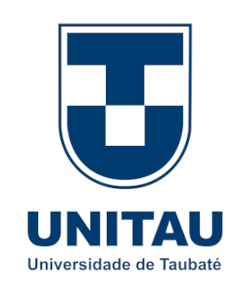DELAYS IN CARGO TRANSPORTATION FROM A LOGISTICS PERSPECTIVE: impacts and solutions through continuous improvement
DOI:
https://doi.org/10.69609/1516-2893.2025.v31.n2.a4063Keywords:
Logística, Melhoria contínua, Atrasos de carga, PDCA, KaizenAbstract
Logistics delays represent a critical challenge to operational efficiency and business competitiveness, directly affecting costs, delivery times, and customer satisfaction. This article analyzes the factors that contribute to delays in cargo transportation and presents solutions based on the philosophy of continuous improvement. The research, qualitative and exploratory in nature, was conducted through a literature review and a case study in a logistics company, with its identity preserved. The results indicate that planning failures, supplier issues, lack of technological integration, and adverse external conditions are the main causes of delays. To mitigate these effects, quality tools such as the PDCA cycle, Kaizen, Ishikawa Diagram, 5 Whys, and Key Performance Indicators (KPIs) were applied. The combined use of these methodologies proved effective in process standardization, failure reduction, and improved logistics management. In practical terms, the analysis showed estimated reductions of up to 15% in delivery delays, an 8% decrease in logistics costs, and a 12% increase in on-time deliveries, highlighting the relevance of continuous improvement for strengthening business competitiveness.
Downloads
Metrics
References
ARMENTER, David. Key Performance Indicators: Developing, Implementing, and Using Winning KPIs. 2. ed. Hoboken: John Wiley & Sons, 2015.
ANDRADE, Maria de Fátima. Gestão da qualidade: fundamentos e práticas. São Paulo: Atlas, 2019.
BALLOU, Ronald H. Gerenciamento da cadeia de suprimentos: planejamento, organização e logística empresarial. 5. ed. Porto Alegre: Bookman, 2006.
BALLOU, Ronald H. Gerenciamento da cadeia de suprimentos: planejamento, organização e logística empresarial. 5. ed. Porto Alegre: Bookman, 2006.
BENEVIDES, K. D. G.; BENEVIDES, P. P.; BENEVIDES, M. P.; VIAGI, A. F.; MOURA, R. A. (2025). Neuroengenharia: uma pesquisa sobre Inteligência Artificial em um posto de trabalho compartilhado entre humano e máquina. Revista Exatas, [S. l.], v. 31, n. 2, 2025. DOI: 10.69609/1516-2893.2025.v31.n2.a4017. https://periodicos.unitau.br/exatas/article/view/4017
BOWERSOX, Donald J.; CLOSS, David J.; COOPER, M. Bixby. Gestão logística da cadeia de suprimentos. Porto Alegre: Bookman, 2014.
BOWERSOX, D. J.; CLOSS, D. J. Logistical Management: The Integrated Supply Chain Process. New York: McGraw-Hill, 2001.
CHOPRA, S.; SODHI, M. S. Managing risk to avoid supply-chain breakdown. MIT Sloan Management Review, v. 46, n. 1, p. 53-61, 2004.
CHRISTOPHER, Martin. Logística e gerenciamento da cadeia de suprimentos: estratégias para redução de custos e melhoria dos serviços. 2. ed. São Paulo: Cengage Learning, 2011.
CUNHA, I. O. J.; JUNIOR, I. A. C.; MOURA, G. G.; MOURA, R. A.; SILVA, M. B. Segurança e ergonomia para força laboral feminina: interação com máquinas colaborativas. Sodebras. Vol. 16. N° 187. 2021. DOI: https://doi.org/10.29367/issn.1809-3957.16.2021.187.08
DA SILVA FILHO, A. L.; BENEVIDES, M. P.; NOHARA, E. L.; DE MOURA, R. A. (2025). Engenharia mecânica na construção de máquina-ferramenta portátil para usinar peças de até 1200 milímetros de diâmetro. ARACÊ, [S. l.], v. 7, n. 7, p. 40298–40314, 2025. DOI: 10.56238/arev7n7-295. https://periodicos.newsciencepubl.com/arace/article/view/6788
DEMING, W. E. Out of the Crisis. Cambridge: MIT Press, 1986.
DIAS, Marco Aurélio P. Administração de materiais: princípios, conceitos e gestão. 6. ed. São Paulo: Atlas, 2011.
HEIZER, Jay; RENDER, Barry. Administração da produção. 9. ed. São Paulo: Pearson Prentice Hall, 2011.
IMAI, Masaaki. Kaizen: a estratégia para o sucesso competitivo. São Paulo: IMAM, 1994.
IMAI, Masaaki. Kaizen: a estratégia para o sucesso competitivo. 5. ed. São Paulo: IMAM, 1994.
JURAN, J. M. Juran on Quality by Design: The New Steps for Planning Quality into Goods and Services. New York: Free Press, 1990.
LAMBERT, D. M.; COOPER, M. C. Issues in supply chain management. Industrial Marketing Management, v. 29, p. 65-83, 2000.
MOURA, R. A.; MARÍLIO, J. W. O.; MARQUES, D. J. R.; OLIVEIRA, M. R.; SILVA, M. B. (2024). Neuroergonomia aplicada na engenharia para testar materiais mais leves e confortáveis para usuários de cadeiras de rodas. Revista SODEBRAS, Vol. 19, N° 221, 2024. DOI: https://doi.org/10.29367/5bge8b53 . https://revista.sodebras.com.br/index.php/revista/article/view/13/8
MOURA, R. A.; MONTEIRO, V. L.; GALVÃO JUNIOR, L. C.; OLIVEIRA, M. R.; SILVA, M. B. (2024). Logística Humanitária: tecnologias digitais de comunicação na gestão de riscos de desastres. Latin American Journal of Business Management, [S. l.], v. 15, n. 1, 2024. DOI: 10.69609/2178-4833.2024.v15.n1.a775. https://www.lajbm.com.br/journal/article/view/775
OHNO, Taiichi. Toyota Production System: Beyond Large-Scale Production. Portland: Productivity Press, 1988.
OLIVEIRA, M. R.; BENEVIDES, K. G.; RUFINO, L. G. C.; SANTOS, D. A.; BENEVIDES, M. P.; MOURA, R. A. (2025). Direito Digital e sua limitação no uso da inteligência artificial hodierna: um ponto para reflexão e ações requeridas. CLCS, [S. l.], v. 18, n. 7, p. e19679. DOI: 10.55905/revconv.18n.7-341. https://ojs.revistacontribuciones.com/ojs/index.php/clcs/article/view/19679
PARMENTER, David. Key Performance Indicators: Developing, Implementing, and Using Winning KPIs. 2. ed. Hoboken: John Wiley & Sons, 2015.
SHINGO, Shigeo. O Sistema Toyota de Produção: do ponto de vista da engenharia de produção. Porto Alegre: Bookman, 1996.
Downloads
Published
How to Cite
Issue
Section
License
Copyright (c) 2025 Thais Eloane Ribeiro, Alisson Vinicius Santos, Newton Eizo Yamada

This work is licensed under a Creative Commons Attribution-NonCommercial-NoDerivatives 4.0 International License.
A submissão de originais para este periódico implica na transferência, pelos autores, dos direitos de publicação impressa e digital. Os direitos autorais para os artigos publicados são do autor, com direitos do periódico sobre a primeira publicação. Os autores somente poderão utilizar os mesmos resultados em outras publicações indicando claramente este periódico como o meio da publicação original.




